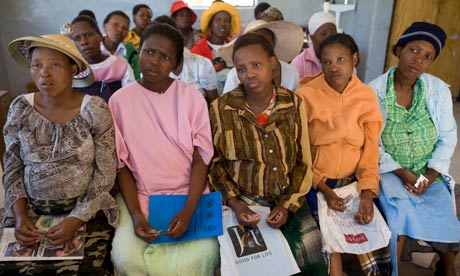
Women who rely on injectable contraception are being strongly advised by the World Health Organisation (WHO) to also use condoms to protect them against the increased risk of HIV infection.
A study in the Lancet last October found that women living in Aids-hit countries using progestogen-only injections, such as Depo-Provera, were twice as likely to become HIV positive as other sexually active women.
The findings caused huge consternation, particularly among family planning experts. In sub-Saharan Africa, the centre of the Aids epidemic, the contraceptive most women choose is a long-lasting injection, which they can keep secret from their partner.
The WHO convened an expert group to examine the evidence. It concluded that hormonal contraception – whether the pill or injection – was safe for women at risk of HIV to use if they wanted to prevent pregnancy.
But the guidance says: "It is critically important that women at risk of HIV infection use condoms and, where appropriate, other measures to prevent and reduce their risk of HIV infection and sexually transmitted infections."
Current evidence is not strong enough to prove or disprove an increased risk of HIV from hormonal contraception, according to the experts. They agreed that the use of hormonal contraception should remain unrestricted if a strong clarification was added to the medical advice "which reflected the difficulties the group had with the data, the need for an enhanced message about condom use and other HIV prevention measures and the need for couples to have access to as wide a range of contraceptive methods as possible".
About half of the 34 million people living with HIV are women. In sub-Saharan Africa, nearly 60% of all new infections occur in women. There is an urgent need for women to have better means of protecting themselves against HIV, particularly if their partner refuses to wear a condom.
"Women need safe contraceptive and HIV prevention options that they can own and manage," said Michel Sidibé, executive director of UNAids. "New investments into research for female controlled HIV prevention options and safe contraceptive methods are essential."
About 25% of the 128 million married or cohabiting women in sub-Saharan Africa aged 15 to 49 want but cannot obtain contraception. UnAids said there was an urgent need for dual solutions to prevent HIV as well as conception.

